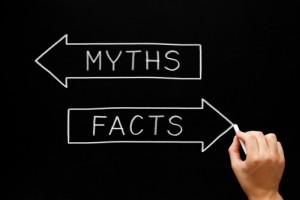Protein - Of Prime Importance
After water it is the most plentiful substance in the body. Some feel that protein in the form of meat and poultry are essential to the diet, others think that protein is animal meat only. Protein however, comes in many forms and some are better for you than others.
There are lots of views on the level of protein we need in our daily food allowance. I am going to cover choosing the right protein and the quantities you should consume for optimum health and of course weight loss!
Benefits of Protein- the scientific bit:
Needed to rebuild body cells, tissue, muscles and organs
Used to keep our amino acid pool topped up - AA's are used for building and repairing the cells of the body
It provides enzymes and hormones
It is a vital element in our body's structure
It is needed in the process of producing hair and nails
It is used as a source of energy if there is an inadequate source
Quite amazing don't you think!
Things you need to know:
To understand the type of energy we get from protein, you first need to imagine a scenario of a sprinter as he or she runs the fast but short distance to the finish line. Protein provides that level of energy - a rush of energy which soon wears off.
The digestive system will not cope with the digestion of high levels of protein, it creates stress to the kidneys & liver and it leaves undigested proteins in the colon causing digestive problems such as flatulence, bloating, IBS, constipation and much more.
High protein diets do not enhance muscle strength, size or mass, and therefore offer no advantage
Choosing the right Protein:
Meat contains saturated fat which is unhealthy. It is not an essential form of protein. You can get your protein from far better sources. If animal protein is eaten a better option would be poultry. Try to limit your intake to 1 per week of red meat and no more than 2 times per week of poultry - weight 50-100 grams.
Fish is a good form of protein and should be eaten 2-3 times per week and 2 of these portions should contain Omega3 such as Salmon, Mackerel or fresh Tuna. Did you know that there is no Omega3 in tinned Tuna
Nuts and seeds are a healthy option but contain a lot of fat/oils therefore a lot of calories, however this is good fat so can be consumed in small amounts - say a tablespoon on cereal, salad or as a snack
Eggs due to cholesterol should be limited to one per week
Beans, pulses & brown rice and grains contain protein along with carbohydrates so a good source of protein as they do not contain fat therefore low in calorific value.
Try to replace some of your current meat protein with these foods.
Daily Recommended amount of Protein:
Protein should make up approx 15% of our daily intake of food
Whilst it is vitally important to our diets we do not need very much of it. Protein in any form should be limited to a maximum of 2-3 portions per day of between 50 - 125gms and be made up mostly of non-animal protein.
As a rule of thumb protein should never be more than 1/6th of the quantity of food on your plate. Over time plates have become very large so a good example would be a dessert plate.
Karen Fullick - Nutritional Therapist
Tip of the day
Try introducing basmati brown rice to your daily food allowance. It has a nutty taste and more chewy texture than white rice. It is full of nutrients and slow release energy. Eating this with vegetable curry is a tasty, healthy alternative to steak and chips and you will feel better afterward!
Related Articles
-
Want Power Before Will Power
The problem isnt that you dont have enough will power to achieve what
-
Top Tips for Consistent Weight Loss
Would you like to lose a little weight b
-
How To Lose Stubborn Belly Fat
Its no surprise that when asked what part of their body they are most
-
7 Reasons You Might Not Be Losing Weight, Even Though Youre Running
-
Fat Loss Common Sense and a Little Science
When we are talking about loosing some pounds in most cases we ar
-
Health - Adding Raw Foods to Your Diet
As we all know uncooked (raw) foods are good for our bodies, this i
- DON'T MISS
- Healthy Weight Losstips
- Potent Approaches To A diet In Daily Life
- Top Weight Loss Tricks - Is A Boot Camp Really Necessary For Weight Loss
- Does The Skin Tighten After Liposuction
- Let Your Losses Be Your Gain
- 10 Tips to Help You Achieve Your New Years Health Goals
- 10 (Very) Common Reasons Why You Are Not Losing Weight
- After WLS Surgical Thigh Lift
- 5 Tips On How To Ease Into Exercise...And Why!
- Super Fast Results With Weight Loss Medications and the Price That Diet Drugs Make You Pay




